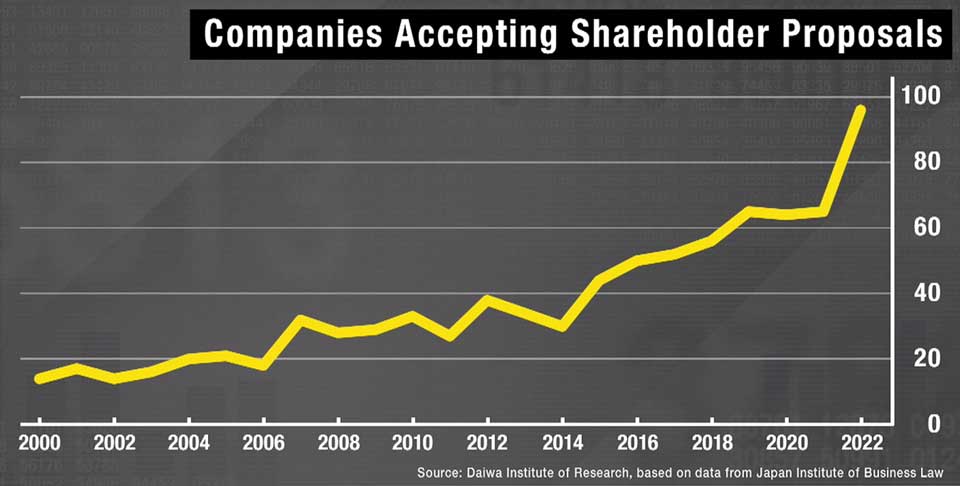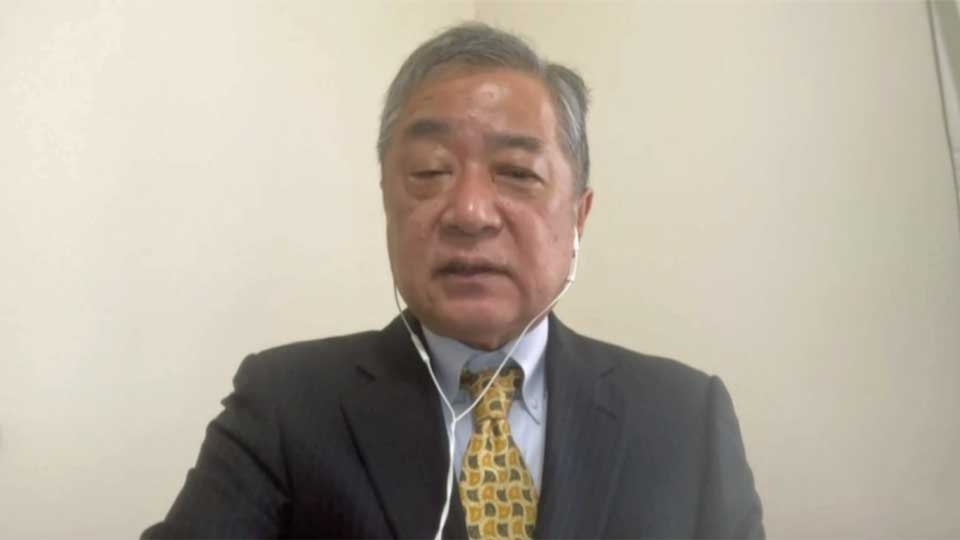"We're interested in the performance of business over the long term," says the chief investment officer at Hong Kong-based Oasis Management, Seth Fischer.
His firm follows a simple formula: investment experts look for companies with a share price that is low in relation to its earning potential. The aim is to invest in a business and prod it to achieve better results.
One of the companies Fischer and his colleagues have high hopes for is elevator maker Fujitec. They made a proposal to replace board members, claiming that the founding family has exerted too much control and hindered growth. So far, they are yet to come to an agreement on business strategy.
Fischer thinks improvement in valuations is often a matter of governance, pointing to a lack of commitment to increasing value for shareholders among Japanese businesses as an opportunity for his firm.
"There are a lot of companies with governance issues in Japan. There's so many, many companies that we can help."

Japanese firms saw a sharp rise in calls for better performance last year. The push for a boost in results sometimes leads to confrontation between management and activist investors.
That's been the case at conglomerate Toshiba. The company has been deadlocked with activists over its direction since it grappled with a series of financial scandals.

Daiwa Institute of Research official Suzuki Yutaka says Japan's corporate infrastructure makes it relatively easy for shareholders to make proposals. He explains that this allows activists to push for the changes they want to see.
"In Japan, investors can present proposals very easily," Suzuki points out. "They can address issues related to dividends and board-member selection without having to go through a complex process."

Suzuki points to a change in emphasis on the part of the Japanese government and the Tokyo Stock Exchange in recent years as another factor.
Both have encouraged stockholders to engage with management and urged firms to place more emphasis on shareholder value.
"A company belongs to its stockholders," he notes, describing the shift as a positive development. "It would be better for firms to work with activists to boost value, rather than working against them."
Shareholder activism now looks like a permanent feature of the corporate landscape in Japan – ensuring some lively debate during the upcoming meetings season with the aim of a better return for investors.

